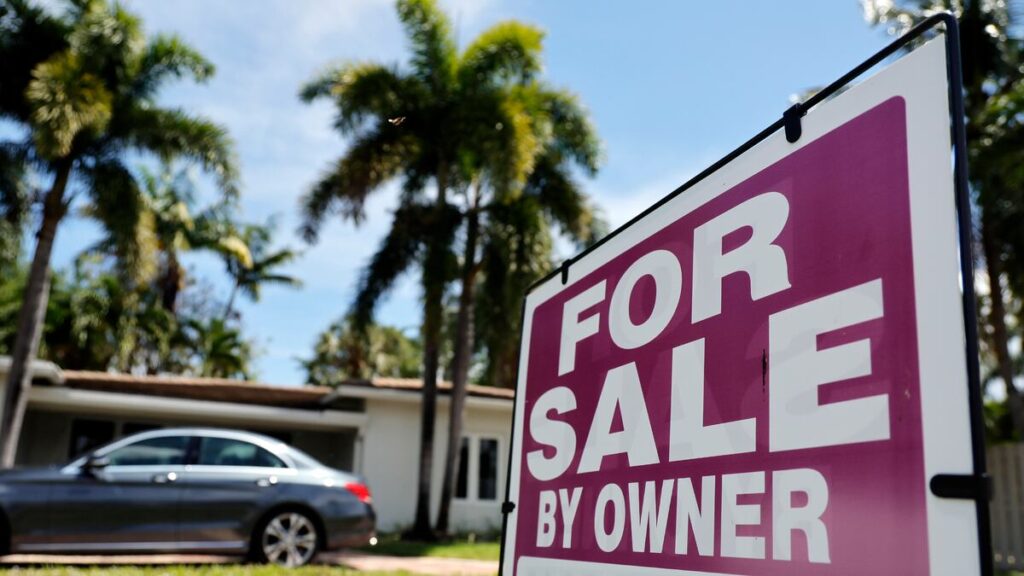For a while, Tampa Bay has been one of the hottest housing markets in the country. But prices declines and delays in sales across the Sunshine state show a tough reversal from the pandemic-fueled home-buying boom.
“People are getting used to making big profits at home in a short period of time,” said the managing broker at Engel & Valkers Madeira Beach. “It’s slowing down.”
The number of homes for sale in the Tampa Bay Metro area remained flat year-on-year, but has since 2022 has fallen about 20% since the market was booming. This is according to preliminary data from Homes.com, a subsidiary of real estate company Costar Group.
The county, which was heavily hit by Hurricanes Helene and Milton, faced even greater losses. Last year, revenue fell by 8% in Hillsborough County and nearly 13% in Pinellas, according to data from the Suncoast Association of Realtors.
It takes time to sell your home. The median time a home spends on the market is currently 70 to 85 days. That’s on par with what we’ve seen historically, but Michelle Rumore, senior director of market analysis at Costar, said it’s far from the Covid-19 era.
Prices across Tampa Bay will be down for the fourth straight month due to fewer homes available and fewer interested buyers. According to Homes.com, the median home price has reached around $365,000. This is down almost 3% since this period last year and about 5% since June 2024, when prices peaked at $385,000.
Prices across the country are actually rising slightly. It marked a four-month price growth in April, up 1.3% year-on-year, marking four-month price growth, according to data from Homes.com.
Florida’s housing market is unique. Rumore said because many people moved here during Covid-19. But now the transition is slowing down, “The effect of rubber bands is a little more obvious here than in other markets,” she said.
Prices have dropped slightly, but that’s not enough to seduce buyers who are facing mortgage rates, insurance costs and overall economic uncertainty, said Ray Wedge, a finance professor at Muma College of Business at the University of South Florida.
Wyckoff said interest rates were artificially reduced during the pandemic to boost the economy. He believes that buyers will eventually adapt to the new normal.
“Looking over the last 50 years, 7% isn’t a scary mortgage rate,” he said.
The market is chilling, but that doesn’t necessarily mean that the crash is on the horizon.
What’s unfolding now is “slow correction,” Wedge said. This is not the major slash of prices that took place after the 2008 financial crisis.
She believes there may be a slight oversupply of homes in the local market now.
“When the market was hot, all the builders jumped in,” she said. “By the time they’re finished, not many people will move to Tampa.”
The good news is that this gives buyers a little more leverage. Wyckoff said he saw more sellers agreeing to cover closure costs, inspections, repairs and other concessions.
“We’re in a more balanced market now,” he said.

